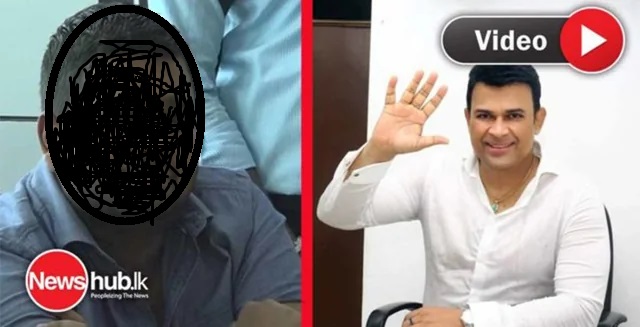-By LeN Political Correspondent

(Lanka-e-News -29.Aug.2025, 11.10 PM) It was the kind of leak that in any functioning democracy would have triggered parliamentary questions, regulatory probes, and a full-scale inquiry into the ethics of journalism. Instead, in Colombo, it was quietly swept under the carpet.
The voice belonged to Ranjan Ramanayake, the actor-turned-politician-turned-reluctant whistleblower, whose tapes have a habit of revealing uncomfortable truths about the country’s political and professional elite. In this particular recording, Ramanayake was in conversation with a media personality who once carried the halo of the BBC brand. The discussion was not about the public interest, but about the mechanics of targeting individuals—how to frame, how to bend narratives, and how to ensure the story reached print with just the right sting.
The journalist in question, whose name was whispered but never scrutinised, has since re-emerged under a new media banner. He continues to hold press credentials, attends government briefings, and even secures access to diplomatic events. To the untrained eye, he remains another member of Colombo’s press corps. To those who have heard the leaked audio, he is a reminder of how journalism can be twisted into a political weapon.
Why was this not investigated? The answer, according to those close to the episode, lies not in the newsroom but in the drawing room of the political establishment. The journalist’s father, himself a figure with connections across party lines, is said to have leaned on senior officials to suppress any official probe. It was, in short, another Sri Lankan story of influence exercised quietly, without paperwork, without accountability.
The result was devastating for the credibility of both politics and the press. Here was a journalist allegedly conspiring with a politician to manufacture stories—some of which remain in the public domain to this day—yet no authority thought it fit to ask whether the public had been deceived.
Ironically, many of the very figures implicated in such media manoeuvres now pose as saints of public interest journalism. They argue for transparency, rail against corruption, and decry the collapse of institutions. Yet the Ramanayake tape suggests that at least one of them was more artisan tailor than investigative reporter: taking a few loose threads, cutting the wrong measurements, and stitching together a suit to fit whatever political body needed dressing.
Such practices, left unchecked, corrode the very idea of a free press. They do not merely bend facts—they bend trust. And once trust in the media is broken, it cannot easily be repaired.
Enter the new National People’s Power (NPP) government, which has promised to redraw the boundaries of ethics in politics and media alike. For the first time in years, there is talk of reopening dormant files and asking awkward questions about who was protected, who was silenced, and who was allowed to continue under the cover of press credentials.
For the NPP, the Ramanayake leak offers both opportunity and peril. To investigate would be to reaffirm its commitment to accountability—even if the target is a journalist once aligned with international standards of credibility. To ignore it would be to repeat the very errors that have hollowed out Sri Lanka’s institutions.
The matter also carries a diplomatic edge. The former BBC journalist still turns up at press conferences alongside foreign envoys and international organisations, presenting himself as a voice of legitimacy. If the leaked audio is accurate, diplomats need to be careful: their words may be filtered not through the lens of journalism, but through the calculations of a political fixer.
At stake is not simply the reputation of one journalist, or even one politician. What matters is whether Sri Lanka is ready to enforce a line between genuine reporting and political hit jobs. In an era where disinformation and manipulation threaten democracies globally, the Ramanayake tapes are more than just Colombo gossip. They are a warning.
The leak, long ignored, now demands a reckoning. The NPP government cannot credibly claim to be building a new democratic culture if it leaves untouched the very mechanisms that corrode democracy from within.
The tape is still out there. The news reports it allegedly inspired are still accessible. What is missing is accountability. And without it, Sri Lanka risks dressing up its old failures in new clothes—another suit cut to the wrong measurements.
-By LeN Political Correspondent
---------------------------
by (2025-08-29 18:42:47)
Leave a Reply